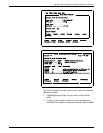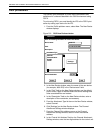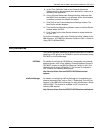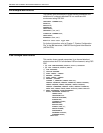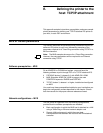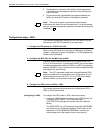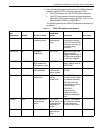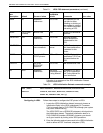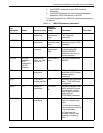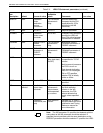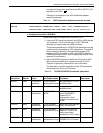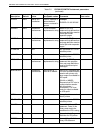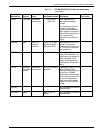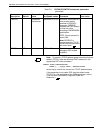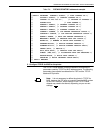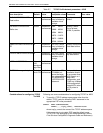
DEFINING THE PRINTER TO THE HOST: TCP/IP ATTACHMENT
XEROX DOCUPRINT 4850/4890 IPS INSTALLATION PLANNING GUIDE E-5
• One FSSDEF statement for each PSF functional
subsystem
• One DEVICE statement for each functional subsystem
application (FSA) under control of the FSS.
The following table lists the JES3 FSS statement parameters to
be defined.
Table E-3. JES3 FSS statement parameters
Item
description Default Source of value
Range of
acceptable
values Comments Your value
FSSNAME None Installation
preferences
1 to 8-character
alphanumeric
string
Specifies name of the
FSS. (Required
parameter)
MSGDEST JES Installation
preferences
JES or a
destination class
name
Specifies the console
destination class for FSS
messages.
PNAME None Name of the FSS
procedure
1 to 8-character
alphanumeric
string
Specifies the procedure
for starting this FSS.
(Different FSSDEF
statements may refer to
same procedure.)
SYSTEM Same as
specified in
JUNIT
parameter of
DEVICE
statement
System ID of
system the FSS
is to run on.
Valid system ID
name
Can also be specified as
QUEUE=
TERM NO Installation
preferences
YES or NO YES specifies FSS
terminates if JES3 global
address space is
terminated.
TYPE TYPE=WTR
must be specified
WTR Specifies FSS is an output
writer. TYPE=WTR must
be specified.
BURST YES Installation
preferences
YES or NO
,M
,M specifies MARKFORM,
which causes IPS printer
to offset-stack or stitch
jobs, subject to printer’s
setting and the
COPYMARK parameter.
COPYMARK J Installation
preferences
N or J or C C: IPS will offset-stack or
stitch on a dataset copy
basis.
J: Printer is to increment
offset stacking or stitching
on a job boundary.
N: Copymarks are
constant, and no offset
stacking or stitching is
done.



